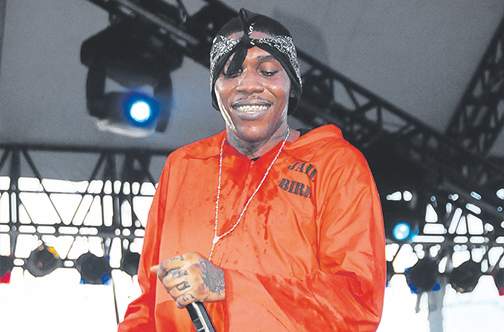LEAD prosecutor in the Vybz Kartel appeal case, Jeremy Taylor yesterday came out swinging in defence of the conduct of Director of Public Prosecution (DPP) Paula Llewellyn during the murder trial, and rubbished accusations of prosecutorial misconduct levied against her, saying they are “unsubstantiated, unmeritorious, and unfortunate”.
Defense lawyer Bert Samuels, who is representing Shawn “Shawn Storm” Campbell, one of three men convicted with Kartel, registered Adidja Palmer, for the August 2011 murder of Clive ‘Lizard’ Williams, on Monday argued that the DPP’s advice given during the murder trial to Justice Lennox Campbell that he should remind the jurors of their oath and proceed with the trial after allegations had arisen, amounted to prosecutorial misconduct.
Samuels also argued that the advice was a departure from good practice and rendered the trial unfair and that the DPP should have stopped the trial.
Senior Deputy DPP Taylor, who was responding yesterday to the case argued by the defence, said there was no evidence to show that there was any misconduct on the part of the DPP or that she had acted in a malicious manner that was to the detriment of the convicted men.
“The Crown submits that prosecutorial conduct has to be made of more offensive and abrasive conduct; was there any allegation about the Crown deliberately not disclosing any material; was there any allegation that the Crown conducted itself in a loud, arrogant and uncouth manner; was there any allegation that the Crown hid any witness, hid any evidence?” he asked.
According to Taylor, the DPP gave her views on what she though was best to preserve the interest of justice.
“The prudent advice of the DPP could not and cannot in any respect be viewed as illegal, improper and unethical, which we are submitting are the components of prosecutorial misconduct,” Taylor argued.
The deputy DPP also responded to accusation by the defence that DPP Llewellyn had acted improperly when she took part in an in-camera hearing with the juror in the aftermath of the jury-tampering allegations, noting that the DPP had a right to be present as she has the power to intervene in any matter.
Additionally, he said the DPP could not have made an application for the case to be abandoned as there were only allegations of jury tampering and no investigation was done. Also, he said the case was in its final stage and the judge was about to close his summation, and ultimately it was the judge’s decision to end the trial.
Taylor then urged the judges to find that the accusations of prosecutorial misconduct were “unsubstantiated, unmeritorious and unfortunate”.
Meanwhile Assistant Director of Public Prosecutions Orrett Brown, who opened the prosecution’s response to the issues raised by the defence, charged that the digital evidence vital in the conviction of Kartel and his co-appellants were not contaminated, and therefore was rightly accepted by the trial judge, Justice Campbell.
“There was no evidence that the BB [BlackBerry] messages, videos and text messages taken from Kartel’s mobile phone were tampered with and, even if they were, that was an issue for the jury to decide,” he said.
In relation to all the digital evidence that the Crown had relied on, he said there no evidence to prove that they were tampered with or altered.
Brown, however, conceded that there were gaps in continuity of the exhibits, which may have given rise to the issue of reliability, but he said that too was a matter for the jury to decide.
“Even if it can be reasonably argued that gaps in the evidence may raise a reasonable doubt, it is still admissible,” Brown said.
The assistant DPP also told the appellate court that the claim by the defence that the damning “chop up fine fine” text was created six weeks before Williams was killed in August 16, 2011 was “a misapprehension of the evidence”.
Brown explained that it was the file that was created six weeks before the murder and not the text, which was created three days after Williams was killed.
He also sought to explain assertions from the defence that one of the phones that was seized from Kartel was used three hours after it was seized by way of text.
Brown said that the text that was sent from the phone was either sent by the service provider or by the police officer who was trying to find out the number assigned to the phone, which is a usual procedure to check the phone if it is locked after it is seized.
As it relates to the three calls that were made from the phone while it was in police custody, Brown said that he had no explanation to offer, while recalling that the investigating officer had said that the phone had dialled itself.
The Crown will continue on Monday to respond to the grounds raised by the defence for the convictions against the four men to be overturned.
Kartel, Shawn Storm, Kahira Jones, and Andre St John were sentenced to life in prison in April 2014, with Kartel being eligible for parole after 35 years, St John 30 years, and the other men after serving 25 years.









